Master Urban Planning | Just a wave?
![Blau Isometrische Elemente und Mockups Technologie im Bildungswe [Image: Natalie Begic] Picto](/fileadmin/Dateien/Architektur-Gestaltung/_processed_/3/a/csm_01-2024-Master-Stadtplanung-begic-Pikto5_51edd5c7f0.jpg)

The profile of the interdisciplinary Master's degree program in Urban Planning (M.Eng.) lies in a practice-oriented education with a theoretical foundation. The course is taught by professors from the fields of urban planning and urban design (Dr. Christina Simon-Philipp, Dr. Gunther Laux, Dr. Philipp Dechow) as well as professors from the neighboring disciplines of architecture, mobility, open space, GIS and economics. Practice, teaching and research are practiced in a close context.
Teaching is supplemented by visiting professors and lecturers from the field. This results in close cooperation with planning and architecture offices, urban planning offices, ministries, development agencies and other universities.
The course deliberately carries the application-oriented degree title "Master of Engineering" and is recognized abroad.
Chamber of Architects
The Master's degree program in Urban Planning includes modules related to the professional tasks of urban planners with a total of 120 credit points and thus fulfills the requirements for registration in the list of urban planners of the Baden-Württemberg Chamber of Architects, depending on the Bachelor's degree (see below).
In the Bachelor's degree course (or when starting in a higher semester with another Master's degree), urban planning and urban design as well as urban building theory and urban planning history must have been taught. This is generally the case in all Bachelor's and Master's degree courses in architecture or urban planning at German colleges and universities.
Students with a Bachelor's degree in another subject area can also acquire the right to be entered on the list of urban planners if they catch up on the relevant skills during the course of their Master's degree. The degree program offers corresponding courses and advice on this.
Traineeship in urban and regional planning
The same applies to access to the higher civil engineering administrative service. The Master's degree in Urban Planning fulfills an important prerequisite for applying for a traineeship in urban planning in Baden-Württemberg (with the degree of Regierungsbaumeister:in). However, a holistic view of the Bachelor's and Master's degree courses is also taken here. In accordance with the career regulations of the Ministry of Regional Development and Housing, the Bachelor's degree program must already have strong links to urban and regional planning. In particular, it must therefore have taught skills in urban planning design. Here, too, it may be possible in individual cases to make up for individual content in the degree program by arrangement.
15 July EU countries
15 June Non-EU countries
4 semester full-time/ 6 semester part time
Master of Egineering (M.Eng.)
![[Image: HFT Stuttgart] Ein Schriftzug und eine Baustelle im Hintergrund](/fileadmin/Dateien/Architektur-Gestaltung/_processed_/2/a/csm_MA-SP-baustelle_3926cfa68d.png)
Cities are changing, urban planning is a process-oriented discipline. We observe the living space of today and develop visions for the urban future. We investigate how we shape change by combining teaching, practice and research. Interdisciplinarity is part of our self-image.
Why don't you plan with us?
![Blau Isometrische Elemente und Mockups Technologie im Bildungswe [Image: Natalie Begic] Picto](/fileadmin/Dateien/Architektur-Gestaltung/_processed_/3/a/csm_01-2024-Master-Stadtplanung-begic-Pikto5_51edd5c7f0.jpg)
![[Image: HFT Stuttgart]](/fileadmin/Dateien/Architektur-Gestaltung/_processed_/7/2/csm_000-2024-master-stadtplanung-essling-herbert-jursch-lonnemann-visu-1_01e881aa44.jpg)
![Eingang Botnang [Image: HFT Stuttgart]](/fileadmin/Dateien/Architektur-Gestaltung/_processed_/c/c/csm_004_2024-master-stadtplanung-abdalla-boedding-gross-ritter-postkarte1_e9f48d4f7a.jpg)
![[Image: HFT Stuttgart]](/fileadmin/Dateien/Architektur-Gestaltung/_processed_/6/0/csm_002-2024-master-stadtplanung-barth-essling-gschwind-zyder-perspektive-quartierspark_dcddf78caf.jpg)
![[Image: HFT Stuttgart]](/fileadmin/Dateien/Architektur-Gestaltung/_processed_/8/e/csm_master-stadtplanung-kreativpassage-2324_efb2a2882a.jpg)
![[Image: HFT Stuttgart] HFT Mobil](/fileadmin/Dateien/Architektur-Gestaltung/_processed_/c/9/csm_Stadtplanung-Forschungsprojekt-HFT-Mobil_32fd855910.jpg)
![[Image: HFT Stuttgart] Studierende vor Gebaeude](/fileadmin/Dateien/Architektur-Gestaltung/_processed_/f/f/csm_master-stadtplanung-gruppenbild-studierende-meunchen_ef16fabf31.jpg)
![[Image: HFT Stuttgart]](/fileadmin/Dateien/Architektur-Gestaltung/_processed_/c/d/csm_MA_Stadtplanung_Titel_Studenten_Wangen_2021_blueht_auf__dace8edc22.jpg)
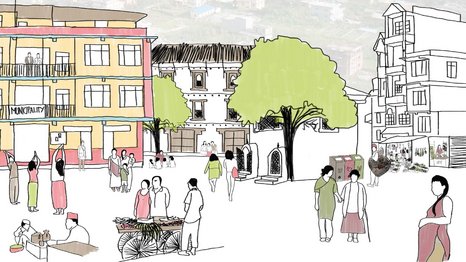
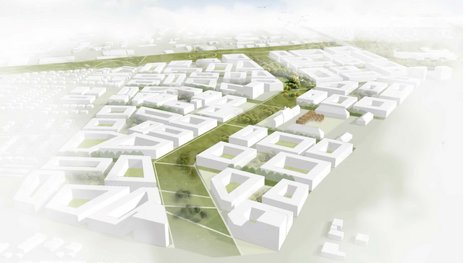
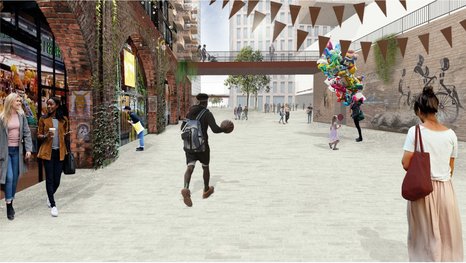
![[Image: Ducky] Cover](/fileadmin/Dateien/Architektur-Gestaltung/_processed_/d/4/csm_Integriertes-Studienprojekt-Loerrach-MSP_2022_5018079975.jpg)

Structure and goals
The aim of the study program is to train team-oriented urban planners with knowledge of urban design, urban development planning and urban renewal. The knowledge is supplemented by specializations, e.g. in project development, energy efficiency and urban design. Core elements of the study model are the integrated study projects, which extend over the entire semester. This allows students to apply their theoretically acquired knowledge directly to the semester project. Since the courses are largely held three to four days a week, it is possible to pursue a professional activity in parallel. The part-time model is recommended for employed persons. The Master's program is further developed together with the semester speakers and can now look back on its own history. The flexible study structure allows for further specializations. The Master has established itself as a full study program for integrated urban planning in Baden-Württemberg. Last reaccreditation 2024
Study focus
In the first semester, the focus is on urban development planning. Particular importance is attached here to the sub-modules study project urban development, mobility, landscape planning, regional and state planning, but also project development, land readjustment and housing strategies. The second semester focuses on urban planning. The urban design in the semester project is considered with topics such as mobility, open space, energy efficiency, urban land use planning, environmental justice, urban climatology, but also planning theories, planning and building code law and scientific work. In the third semester, the focus is on urban renewal. Topics of urban design, urban sociology, politics and management, redevelopment law and urban development funding but also the planning instruments of urban renewal and smart city play an important role. In the fourth semester, the program is completed with a master's thesis.

What I particularly like about the Master of Urban Planning at the HFT is the project-related, interdisciplinary and practical orientation, as well as the good supervision in the Course
Fields of activity
The degree course prepares students for various fields of activity in the public and private sectors. The career prospects are excellent. Thanks to the integrated study model, graduates can flexibly familiarise themselves with new fields of work and build up their own specialisations. Some of them successfully complete their urban planning traineeship and take on management positions in public administration, while others have career prospects in urban research, housing and development companies and the real estate industry. There are also further occupational fields of an integrated understanding of planning in social, ecological and economic subject areas as well as the path to planning offices or self-employment.
![[Image: HFT Stuttgart] Vier Personen sitzen vor einer Glasfront](/fileadmin/Dateien/Architektur-Gestaltung/_processed_/7/7/csm_MA-SP-fensterfront_da98e89513.png)
Integrated urban planning study project
Sustainable urban mobility planning
Open space
Energy-efficient urban development
Urban land use planning
Environmental justice
Urban climatology
Planning theories
Scientific work
Planning and building regulations law
Integrated study project urban development
Landscape planning
Mobility development planning
Methods of public participation
Digital planning tools
Regional and state planning
Project development
Land readjustment and evaluation
Housing strategies
Integrated study project urban renewal
Urban design
Urban Sociology
Policy and management
Planning instruments of urban renewal
Special urban planning law
Smart City
Special subjects, competitions, specialisations, workshops, offers from other disciplines...
Introduction to the Master Thesis
City research
Master Thesis
Presentation of the Master Thesis
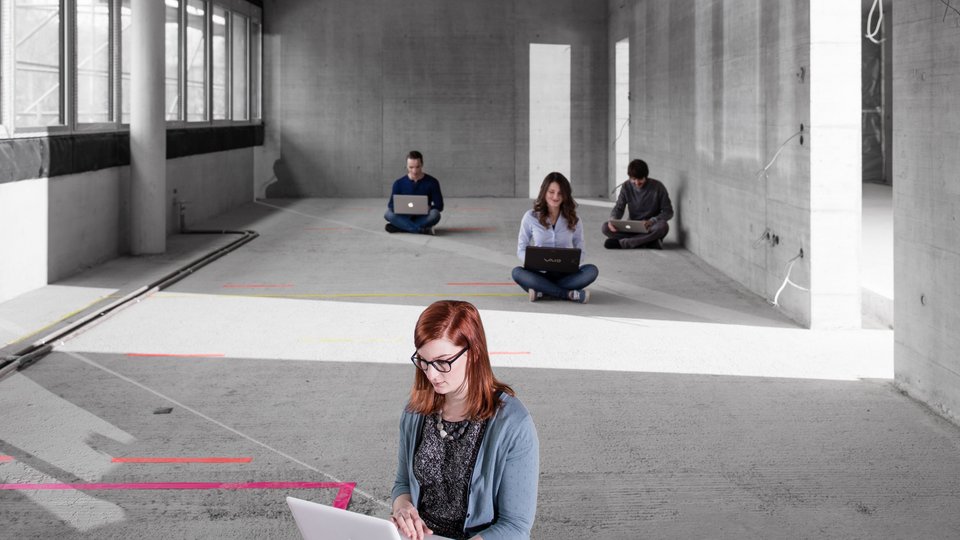
Admission requirements for the Master programme
An above-average university degree with at least 180 credit points according to the European Transfer System (ECTS) obtained at a German university or at a comparable foreign university in the fields of urban planning, architecture, civil engineering, landscape architecture/landscape planning, geography, infrastructure management or other spatially related, planning-relevant disciplines. All applicants must have a good active knowledge of the English language in order to be able to follow English-language courses.Applicants whose native language is not German must prove sufficient knowledge of German by passing a German language examination. E.g. German language examination for university admission (DSH), Großes oder Kleines Deutsches Sprachdiplom of the Goethe-Institut, Test Deutsch als Fremdsprache (TestDaF) at least on Level 4.
Application documents and application for admission
The application is made exclusively online via our application portal at campus.hft-stuttgart.de
All documents, portfolio etc. required for the application can be uploaded there. An additional written form is no longer necessary. All attachments required for the application:
Tabular curriculum vitae with photograph
A letter of application with motivation letter and exposé
Explanation full-time or part-time (will be asked for in the online tool)
the following documents as officially certified documents:
Certificate of higher education entrance qualification (for foreign degrees, also a German certified translation)
Certificate of first degree. For foreign degrees, an additional German certified translation.
or: a certified grade sheet of all examinations required in the first degree (except for the degree certificate)
Residence permit (for non-EU citizens)
Proof of German language skills (e.g. DSH, or equivalent tests, required for applicants whose native language is not German).
![[Image: HFT Stuttgart] Eine Aussenanlage mir Betonsitzen und Grafitti](/fileadmin/Dateien/Architektur-Gestaltung/_processed_/5/6/csm_MA-SP-aussenanlage_5799a5c23b.png)
![[Image: HFT Stuttgart] Das Cover einer Publikation](/fileadmin/Dateien/Architektur-Gestaltung/_processed_/6/3/csm_MA-SP-das-wohnungsbauerbe-der-50-60er-jahre_5a4bfd3101.jpg)
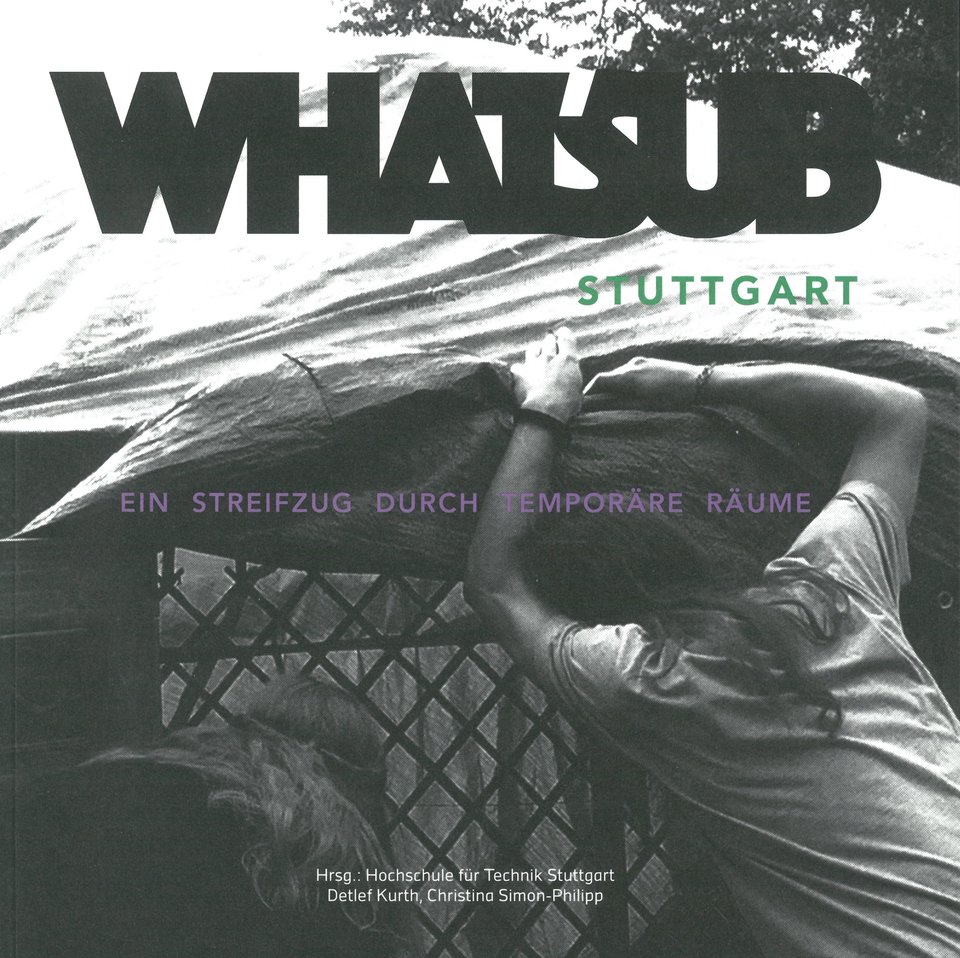
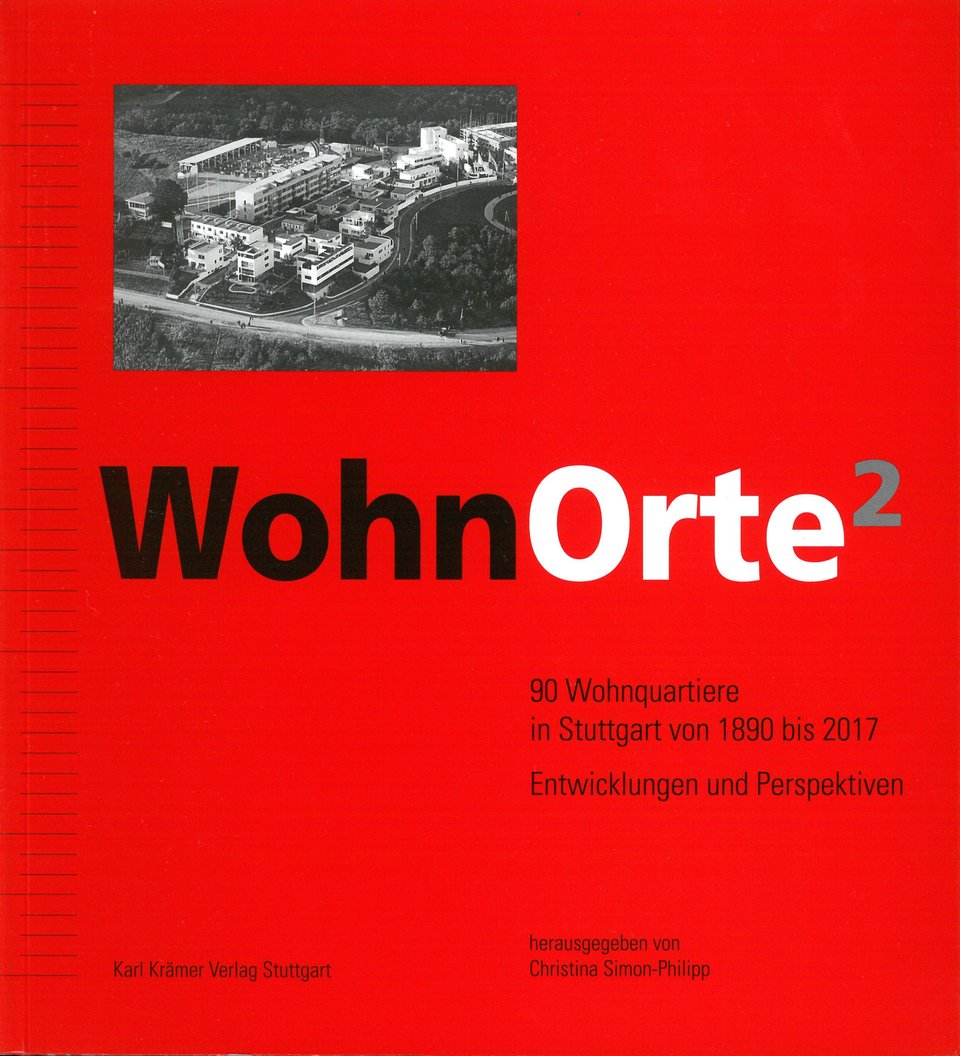
![[Image: HFT Stuttgart] Das Cover einer Publikation](/fileadmin/Dateien/Architektur-Gestaltung/_processed_/5/5/csm_MA-SP-einfamilienhaeuser-50-60-70-simon-philipp-korbel-2016_cfbfecf9f6.jpg)
Teaching, practice and research are closely interlinked in the Master's programme in Urban Planning (Link HFT-Research ZNS). We conduct research in interdisciplinary teams and apply a variety of research methods. Teaching research projects are particularly important to us. Dissertations are supervised in cooperation with universities throughout Germany. Our research focuses on: sustainable urban development, energetic neighbourhood development, housing heritage of the 1950s to 1970s, city and region, urban centres, public space and mobility, experimental urban space, title and cover of recent publications, including:
WohnOrte
Wohnungsbauerbe 50er-70er
Einfamilienhausbücher
Größer höher dichter
Whatsub
I_City Veröffentlichungen (Februar 2020)
...
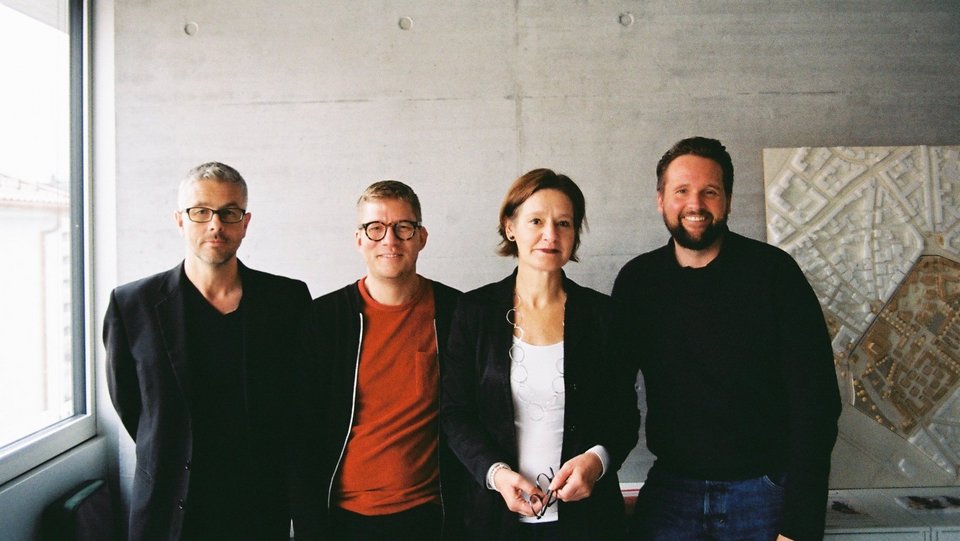
fltr
Prof. Dr. Gunther Laux
Professor of Urban Design, Urban Planning, Architect, Urban Planner SRL, Own Office for Architecture and Urban Development since 1996, Managing Partner Laux Architekten GmbH
gunther.laux@hft-stuttgart.de
Prof. Dr. Philipp Dechow
Dean of Studies, Professor of Urban Design, Urban Planning
philipp.dechow@hft-stuttgart.de
Prof. Dr. Christina Simon-Philipp
Professor of Urban Development and Urban Planning, Architect, Urban Planner, DASL, dwb, SRL, Network urbi_et: stadt_forschung_praxis, Office Stuttgart
christina.simon@hft-stuttgart.de
Henning Mackwitz, M.Eng. Academic Assistant
henning.mackwitz@hft-stuttgart.de
0711 8926 2618
![[Image: HFT Stuttgart] Eine Ausstellung in historischem Gebäude mit Modellen](/fileadmin/Dateien/Architektur-Gestaltung/_processed_/9/2/csm_MA-SP-ausstellung_09fe928bf7.png)
adress
Hochschule für Technik Stuttgart
Master-Studiengang Stadtplanung
Fakultät Architektur und Gestaltung
Schellingstraße 24
70174 Stuttgart
stadtplanung(at)hft-stuttgart.de
Dean of master programm
Prof. Dr.-Ing. Philipp Dechow
Telefon +49 (0)711 8926 2618
Fax +49 (0)711 8926 2594
Raum 8/3.10, Bau 8, Breitscheidstr. 5
philipp.dechow@hft-stuttgart.de
Acadamic Assistant
Henning Mackwitz, M.Eng.
Telefon +49 (0)711 8926 2618
Fax +49 (0)711 8926 2594
Raum 8/3.28, Bau 8, Breitscheidstr. 5
henning.mackwitz(at)hft-stuttgart.de